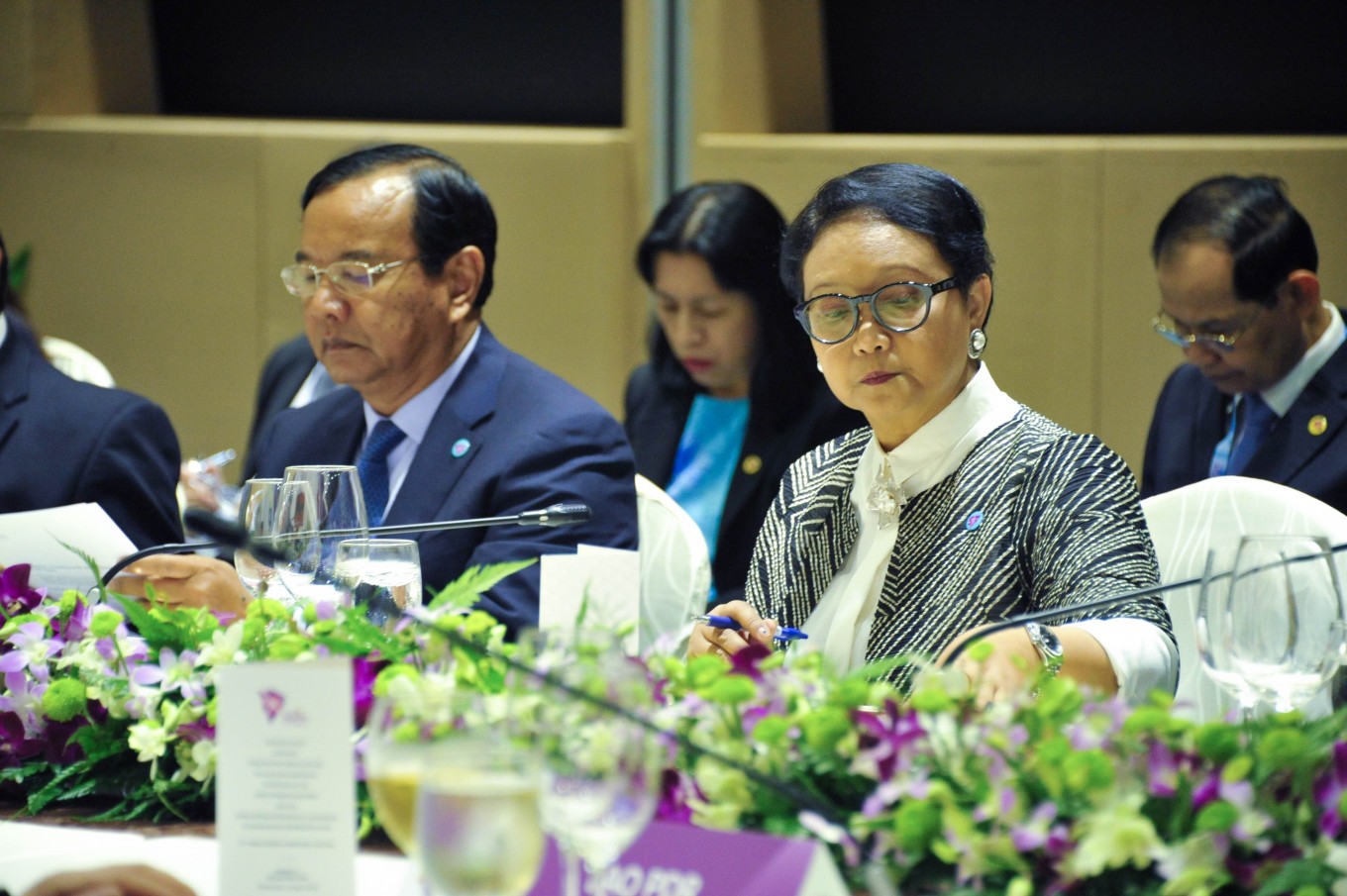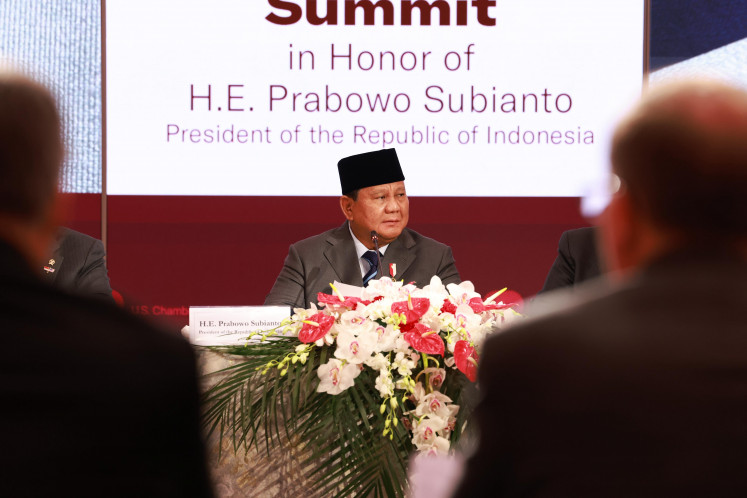Popular Reads
Top Results
Can't find what you're looking for?
View all search resultsPopular Reads
Top Results
Can't find what you're looking for?
View all search resultsAICHR ready to become stronger human rights mechanism
While its promotional activities have been positive and helped to mainstream human rights dialogue on the regional stage, less progress has been made in terms of the protection of human rights.
Change text size
Gift Premium Articles
to Anyone
O
n May 1, for the first time in its history, the ASEAN Intergovernmental Commission on Human Rights (AICHR) issued a statement that directly addressed a human rights issue of concern to the region. The statement urged all ASEAN member states and sectoral bodies to ensure that their responses to the COVID-19 pandemic promote and protect the human rights of the people of ASEAN.
But such a show of solidarity and unity of purpose on such a serious issue should not be so unusual. To continue to grow in strength and demonstrate the value of a human rights mechanism in the region, the AICHR needs to build on its incremental progress and implement more initiatives to protect the human rights of the people of ASEAN.
The terms of reference (TOR), which set out the mandate and functions of the AICHR, somewhat curtail its ability to protect human rights, including those contained within the ASEAN Human Rights Declaration. But the AICHR does not have to be bound by these terms forever. The commitment to review is stipulated in the text of the TOR itself, which states that they shall be reviewed five years after their entry into force.
However, after more than 10 years of the AICHR’s existence, no review has taken place. But the ASEAN foreign ministers took the crucial first step in 2019 of agreeing that a panel of experts would be formed to finally review the TOR. The long-awaited review is the best way for the AICHR to develop into a stronger regional human rights mechanism.
There are several powers and features that a regional human rights mechanism should have, including receiving, investigating and deciding upon communications, carrying out on-site visits to investigate concerns, and being composed of members who are independent from government. These characteristics can be seen in the human rights mechanisms of Europe, the Americas and Africa, which should certainly be looked upon to guide the AICHR’s TOR review.
Since it was formed in 2009, the AICHR has held numerous events and activities to promote human rights on a governmental level rarely seen before in the region. But while its promotional activities have been positive and helped to mainstream human rights dialogue on the regional stage, less progress has been made in terms of the protection of human rights.
The specific actions provided for in the TOR include to enhance public awareness, prepare thematic studies and encourage member states to consider acceding to international treaties — all worthy pursuits, but they fall firmly within the category of promotion, not protection. The AICHR needs to provide meaningful protection, which could shield people from harm, ensure access to justice and provide remedies to those whose rights have been violated.
While the TOR does not provide for a complaints mechanism yet, the AICHR has also shown that there is a willingness to push for institutional reforms under the current mandate. At the AICHR’s Special Meeting in November 2019, a new protocol to formally acknowledge communications was agreed, meaning complaints on human rights violations can now be forwarded to the relevant country representative through the AICHR. This is a significant step in the right direction and shows the AICHR’s aspiration to become a more responsive human rights mechanism.
The ability to receive communications is crucial, and should also be accompanied by the powers to investigate, appropriately respond to and follow up on complaints. The AICHR should have the power to request preventive measures be put in place and offer potential remedies where human rights abuses have been identified. The goal is not to interfere, point fingers or damage the reputation of any member state, but to improve the state of human rights and advance together as a region.
The principles of consensus decisionmaking and non-interference are integral to how ASEAN functions, but there are issues with how they are applied in the context of human rights. A country representative to the AICHR can effectively veto an urgent discussion or activity by merely disagreeing on the matter.
It is vital that the TOR review reconsiders how the consensus and non-interference principles are applied within the AICHR and how this can be done in a way that enhances its ability to advance human rights. Ensuring that alternative decisionmaking is available to the AICHR, in agreed circumstances and where there is no unanimous vote, would increase its capacity to do important work while remaining true to the founding principles of ASEAN.
The AICHR can and should be a mechanism that evolves over time, learns from its past and builds upon its experiences in preparation for the future. The TOR review ensures that this is possible. Progress has already been made, and we cannot backtrack now or allow that progress to stagnate.
When it comes to human rights, no country is perfect, whether in ASEAN or elsewhere in the world. Recent developments, including the establishment of a communications protocol and the COVID-19 statement, show that the AICHR wants to and can do more. The TOR review presents an extraordinary opportunity for the AICHR to work toward becoming the stronger and more responsive human rights mechanism that the people of ASEAN deserve.
***
Representative of Malaysia to the ASEAN Intergovernmental Commission on Human Rights (AICHR)










